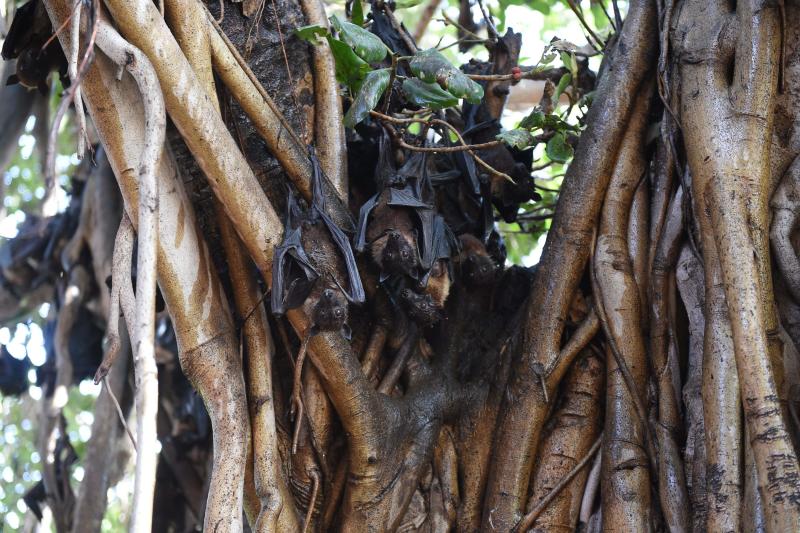Nipah virus kills at least three in India, sparks panic in district
Sign up now: Get insights on Asia's fast-moving developments

Fruit bats are considered the main carrier of the virus for which there is no vaccination, according to the World Health Organisation.
PHOTO: AFP
NEW DELHI (AFP) - A virus mainly carried by fruit bats which has spread across Asian nations has killed at least three people in southern India and caused panic in one district, officials said Monday (May 21).
Eight other deaths in the state of Kerala are being investigated for possible links to the Nipah virus, which has a 70 per cent mortality rate.
"The government received four samples, out of which three deaths were because of Nipah," Kerala health secretary Rajeev Sadanandan told AFP. The victims died in Calicut district.
Sadanandan said the cause of other suspicious deaths could only be confirmed through tests.
"We have sent blood and body fluid samples of all suspected cases for confirmation. It will take 24-48 hours for the results to come."
India's health minister rushed medical experts to the state after a local politician reported that residents were panicking in Calicut district.
The team would "initiate required steps as warranted by the protocol for the disease", J.P. Nadda said on Twitter.
In Kerala, neighbours told local media that family members who died had eaten fruit picked from a compound where they were building a home.
Nipah induces flu-like symptoms that often lead to encephalitis and coma. Fruit bats are considered the main carrier of the virus for which there is no vaccination, according to the World Health Organisation.
Nipah was first identified in Malaysia in 1998. It spread to Singapore and more than 100 people were killed in both places. On that occasion, pigs were the virus hosts but they are believed to have caught it from bats.
In India the disease was first reported in 2001 and again six years later, with the two outbreaks claiming 50 lives.
Both times the disease was reported in areas of the eastern state of West Bengal bordering Bangladesh.
Bangladesh has borne the brunt of the disease, with more than 100 people dying of Nipah since the first outbreak was reported there in 2001.
In Bangladesh in 2004, humans became infected with Nipah as a result of consuming date palm sap that had been contaminated by infected fruit bats.


